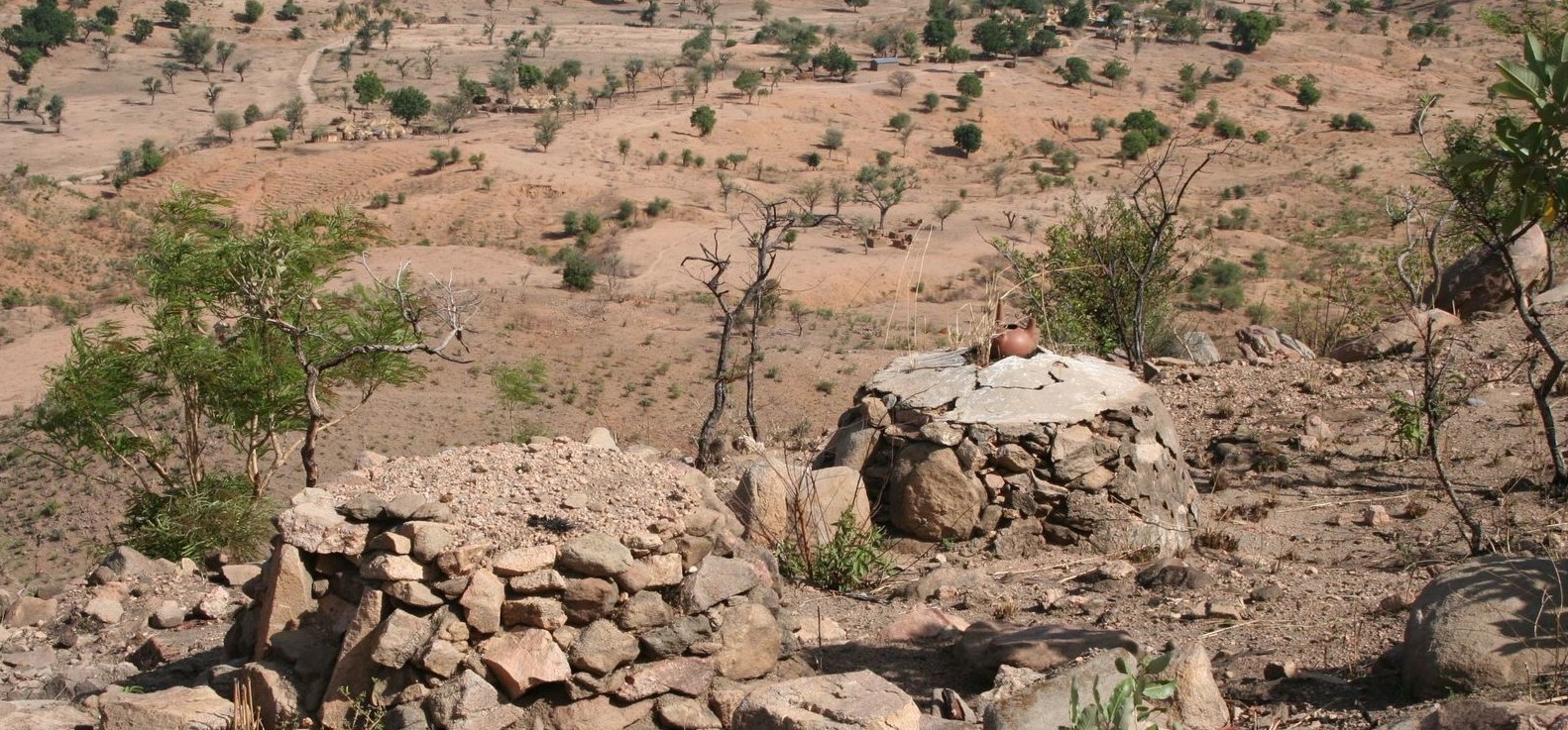QUEEN’S RESEARCHER LEADS GLOBAL CLIMATE CHANGE PROJECT AT WORLD HERITAGE SITES 
23 November 2020
A researcher at Queen’s is leading a new global project focusing on helping two African communities to manage the impact of climate change on their cultural heritage.
Dr Will Megarry, senior lecturer in Geographical Information Science and Archaeology at the School of Natural and Built Environment, is lead investigator on the CVI-Africa project – the Climate Vulnerability Index for World Heritage properties in Africa.
A global team is working on the programme which will provide training to six African heritage professionals at UNESCO World Heritage Sites in Nigeria and Tanzania where communities have been impacted by climate change.
It has been funded by the UK Arts and Humanities Research Council’s Global Challenges Research Fund through a scheme arranged by the UK Department for Digital, Culture, Media & Sport (DCMS) which is designed to respond effectively to climate change impacts on cultural heritage in developing countries.
The Climate Vulnerability Index is a tool developed by academics to analyse climate risk for World Heritage properties by considering both current and projected climate impacts on cultural heritage, and its associated impact on local communities. It has already been successfully applied to sites in Western Australia and Orkney in Scotland.
Africa is projected to warm more rapidly than most other regions in the world, meaning that communities and their heritage continue to be especially hard-hit by the impacts of climate change.
Dr Megarry, who is an archaeologist, geographical information systems and heritage management specialist, explained:
“Climate change impacts are already resulting in the loss and damage of cultural heritage sites across Africa.
“This loss is not limited to historical and archaeological buildings and places, it is also impacting communities and their cultural traditions. How those who care for Africa’s cultural heritage respond to the threat of climate change has profound implications for the resilience of the broader community.
“The CVI-Africa project will support communities in their efforts to safeguard cultural heritage, respond to climate change and seek sustainable development options.”
Most of the year-long project will take place remotely, but Dr Megarry plans to lead a team to The Ruins of Kilwa Kisiwni and Songo Mnara in Tanzania next summer. It was inscribed as a UNESCO World Heritage Site in 1981 as a testimony to the expansion of Swahili coastal culture, and to the spread of Islam in Africa.
The site, which is about 300 km south of Dar es Salaam, was founded in the ninth century and became a major trading centre by the 13th century.
The islands are experiencing continuing erosion due to increased storminess and rising seas levels. Ongoing initiatives at the site include the construction of a sea wall to protect specific structures and alternate land use strategies to increase natural protection, including the replanting of mangrove forests along the coast.
While sites like Kilwa Kisiwani remain at risk, they also represent good examples of climate adaption. In Tanzania, Dr Megarry will work with African heritage professionals, local and national experts, international partners and other stakeholders including the Tanzanian Ministry of Natural Resources and Tourism.
Dr Megarry continued: “The loss of heritage sites affects the entire community and results in huge losses to their livelihoods as well as the emotional experience involved.
“Our hope is that our work with heritage professionals will help them to apply important skills to not only protect and sustainably manage the sites, but to help the communities that rely on them to manage the effects of climate change.”
Mercy Mbogelah, site manager of Ruins of Kilwa Kisiwani and Songo Mnara World Heritage Site in Tanzania, said:
“Climate change has brought a lot of impacts to cultural heritage resources especially to the monuments which are located along the coast.
“Although we took some adaptation measures to stop the speed of wave actions going direct to the monuments, more action and learning experiences from others is needed. The CVI-Africa project will bring us together to find more actions to reduce or stop these challenges.”
The project will also focus on another African World Heritage site – the Sukur Cultural Landscape in Nigeria – where the group will work with the Nigerian National Commission for Museums and Monuments.
Media enquiries should be addressed to the Communications Office at Queen’s University Belfast.
Headline image credit: UNESCO/World Heritage
Back to Main News
Top of Page